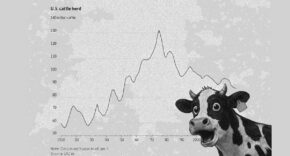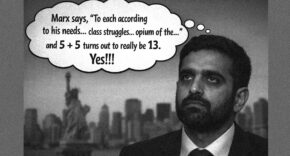A New Push to Rein In Prescription Drug Costs
President Donald Trump has announced that he will sign what he describes as one of the most important executive orders in American history. The order, which he plans to sign at the White House, is aimed at dramatically reducing the cost of prescription drugs by tying U.S. drug prices to the lowest prices paid by other wealthy nations.
“I will be instituting a Most Favored Nation’s policy whereby the United States will pay the same price as the nation that pays the lowest price anywhere in the world,” Trump wrote on Truth Social. He promised that the executive order would lead to drug prices being “reduced, almost immediately, by 30 percent to 80 percent.”
Trump said this policy would correct a long-standing and unfair situation where Americans pay far more for medications than people in other countries. “It was always difficult to explain and very embarrassing because, in fact, there was no correct or rightful answer,” he said. “The Pharmaceutical/Drug Companies would say, for years, that it was Research and Development Costs, and that all of these costs were, and would be, for no reason whatsoever, borne by the ‘suckers’ of America, ALONE.”
The Problem of Sky-High Drug Prices
For years, the United States has led the world in prescription drug prices. According to a 2024 report from the Department of Health and Human Services, Americans pay more than twice as much for prescription drugs as citizens of other developed countries. In some cases, the difference is five to ten times more, even for the same medication made by the same company in the same factory.
Medicare Part B, which covers drugs administered in doctors’ offices and outpatient clinics, spent more than $33 billion on prescription medications in 2021. That number has continued to grow, placing pressure on both government budgets and senior citizens who depend on Medicare.
Commerce Secretary Howard Lutnick commented that the United States ends up funding most of the pharmaceutical industry’s development costs, while other countries benefit from the discounts. “We pay for the drug, and they pay the copay,” Lutnick said. “They’re paying like the $10, $20, $30.”
How the Executive Order Would Work
The new executive order will require drugmakers to offer Medicare the lowest price available among a list of economically advanced nations. This approach is known as a “Most Favored Nation” policy. It will apply mainly to high-cost drugs that are covered under Medicare Part B, such as chemotherapy drugs and injectable treatments.
Trump said this approach would create fairness for American citizens. “Our country will finally be treated fairly, and our citizens’ healthcare costs will be reduced by numbers never even thought of before,” he wrote. “Additionally, on top of everything else, the United States will save trillions of dollars.”
The executive order is based on a similar policy Trump introduced in 2020. That version of the policy was estimated to save the government and Medicare beneficiaries nearly $88 billion over seven years. However, it was blocked by federal courts and eventually canceled by the Biden administration.
This time, Trump appears determined to see it through. He called it “one of the most consequential Executive Orders in our Country’s history.”
Supporters of the move say it is a long-overdue correction to a system that has favored pharmaceutical companies at the expense of American patients. Trump insisted that drug companies have gotten away with this for far too long, in part because of their political donations. “Campaign contributions can do wonders,” he said, “but not with me, and not with the Republican Party. We are going to do the right thing, something that the Democrats have fought for many years.”
Senator Josh Hawley, a Republican from Missouri, and Senator Peter Welch, a Democrat from Vermont, recently introduced a bipartisan bill that builds on Trump’s earlier drug pricing plan. The bill would make it illegal for companies to sell prescription medications in the U.S. at a higher price than in six peer countries: Canada, France, Germany, Japan, Italy, and the United Kingdom.
“No one should ever be forced to choose between paying for the prescriptions they need or putting food on the table,” Welch said. Hawley called the legislation “a way to end a drug market that favors Big Pharma” and said it would “make prescriptions affordable again.”
Critics Raise Concerns
While the proposal has support from some lawmakers and many voters, it is already facing strong opposition from the pharmaceutical industry. Stephen Ubl, the president of the Pharmaceutical Research and Manufacturers of America (PhRMA), said the plan could do more harm than good.
“This Foreign First Pricing scheme is a bad deal for American patients,” Ubl said in a statement. “Importing foreign prices will cut billions of dollars from Medicare with no guarantee that it helps patients or improves their access to medicines. It jeopardizes the hundreds of billions our member companies are planning to invest in America.”
Health care analysts are also questioning whether the policy can deliver the dramatic savings Trump promised. Chris Meekins, a policy analyst with Raymond James, warned that the bold claims might not match the actual results. “Trump has a long history in his first term of talking bigger on drug pricing than what his policies would actually do,” Meekins wrote in a note to clients. He added that large executive actions are more likely to be blocked by courts.
Experts also warn that if the policy leads to price controls or import tariffs on medications, it could create shortages, especially for generic drugs that are already in short supply.
Legal and Political Hurdles Ahead
The original version of the Most Favored Nation rule faced four lawsuits and was stopped by a nationwide injunction. That legal fight could be repeated if the new executive order uses the same approach. It is also unclear whether the new plan will be folded into broader Republican efforts to cut government spending on health care, including changes to Medicaid.
Some Republicans are uneasy with the idea of tying U.S. drug prices to decisions made by foreign governments. While other countries often negotiate national drug prices, the U.S. has historically allowed the market to set prices.
The Trump administration has argued that this approach no longer works in a global system where American consumers are paying the full cost while others benefit from government-negotiated prices.
As Trump prepares to sign the executive order, many are watching to see if it can survive the same legal and political attacks that blocked it before. If implemented successfully, the policy could deliver major savings for Medicare and bring financial relief to millions of Americans who struggle to afford life-saving medications.
For now, Trump is framing the move as a historic correction. “The world has wondered why Prescription Drugs and Pharmaceuticals in the United States of America were so much higher in price,” he wrote. “There is no longer a good reason. We are finally doing what is right.”





